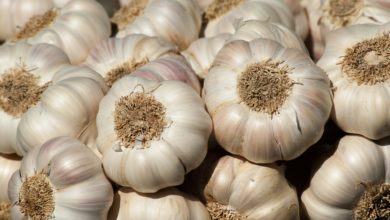UA Shares Agricultural Technology With World

The University of Arizona again served as Official Knowledge Partner to the 2015 Global Forum for Innovations in Agriculture held in Abu Dhabi, United Arab Emirates, this spring. With 102 countries represented at the Forum — launched just a year ago — the GFIA has become one of the world’s most influential global platforms for scientists, entrepreneurs and policymakers to present and explore innovations toward sustainable agriculture and food security.
UA-sponsored exhibits have included various controlled environment agriculture greenhouse technologies, a patented algal bioreactor for biofuels and aquaculture systems.
“Our GFIA involvement clearly recognizes the University of Arizona’s global reputation,” said Shane Burgess, dean of the College of Agriculture and Life Sciences. “Our world-class expertise and record of arid-land food security and sustainability innovations in CALS benefit our state and the rest of the world.”
The GFIA is sponsored by the Abu Dhabi Food Control Authority under the patronage of its chairman, H. H. Sheikh Mansour Bin Zayed Al-Nahyan, who serves as deputy prime minister of the UAE and minister of presidential affairs. The World Bank, the Clinton Climate Initiative and the CGIAR, among others, were represented on the forum’s advisory board.
Last year’s inaugural GFIA, for which the UA also served as Official Knowledge Partner, or university consultant, was named Best Conference at the 2014 Middle East Event Awards.
“As a land-grant university, innovation has simply been an integral part of our DNA,” said Joel Cuello, official UA liaison to the GFIA and professor of agricultural and biosystems engineering.
“At CALS, what is natural for us to seek to discover and design not only applies to the benefit of Arizona, but the rest of the world,” he said.
Along with the large exhibition of varied technology innovations, roundtable discussions and more than 100 TED-style innovation presentations, this year’s GFIA featured five conferences, including the Global Climate-Smart Agriculture Summit, held in the same year of the United Nations’ launching of the Global Alliance for Climate-Smart Agriculture.
U.S. Secretary of State John Kerry, the United Kingdom’s Prince Charles and other dignitaries delivered keynote addresses.
In addition to co-organizing with the Global Cities Network the forum’s featured conference on “Edible Cities: Building Resilience with Urban Agriculture,” the UA also co-organized with the UAE Ministry of Environment and Water a tutorial workshop on arid land hydroponics and algae production.
“Given that over 70 percent of the world’s population is expected to live in cities by 2050, the pressure for cities to develop their own sustainable food production systems drives innovations in an integrated way across the food, water and energy nexus,” said Cuello, who participated in the Edible Cities Conference plenary panel discussion. “This clearly helps in reimagining the technologies and strategies to improve the performance of more traditional production systems.”
Joining Cuello in delivering the tutorial workshop were UA senior research specialistTakanori Hoshino, postdoctoral researcher Sara Kuwahara, master’s student Cody L. Brown —all from the CALS Department of Agricultural and Biosystems Engineering — and UA alumnus Eiichi Ono of Japan’s Tamagawa University.
Ten countries were represented among the tutorial workshop attendees, who included producers, entrepreneurs, investors and government officials.
“The attendees were quite engaged,” Brown said. “It was apparent that they were seriously considering crop hydroponics and algae production as innovative alternatives for higher-value production systems in arid lands.”
Other UA CALS participants in the GFIA included Kevin Fitzsimmons, International Programs; James Buizer, School of Natural Resources and the Environment; and Akrum Tamimi and George Zaharescu, from the Department of Soil, Water and Environmental Science.
The Program Innovation team at the UA Office of Global Initiatives assisted in facilitating the partnership with the GFIA.
“As a land-grant institution, the University of Arizona enjoys a long tradition of working with communities through the discovery and dissemination of agricultural systems and innovations,” said Randy Burd, assistant vice president for program innovation for UA Global Initiatives and CALS associate professor of nutritional sciences.
“This project allows the UA and other U.S. land-grant institutions to connect internationally with universities, private industry and government entities to increase impact and establish a 21st-century land-grant mission that spans the globe,” Burd said.
Source: uanews.org




